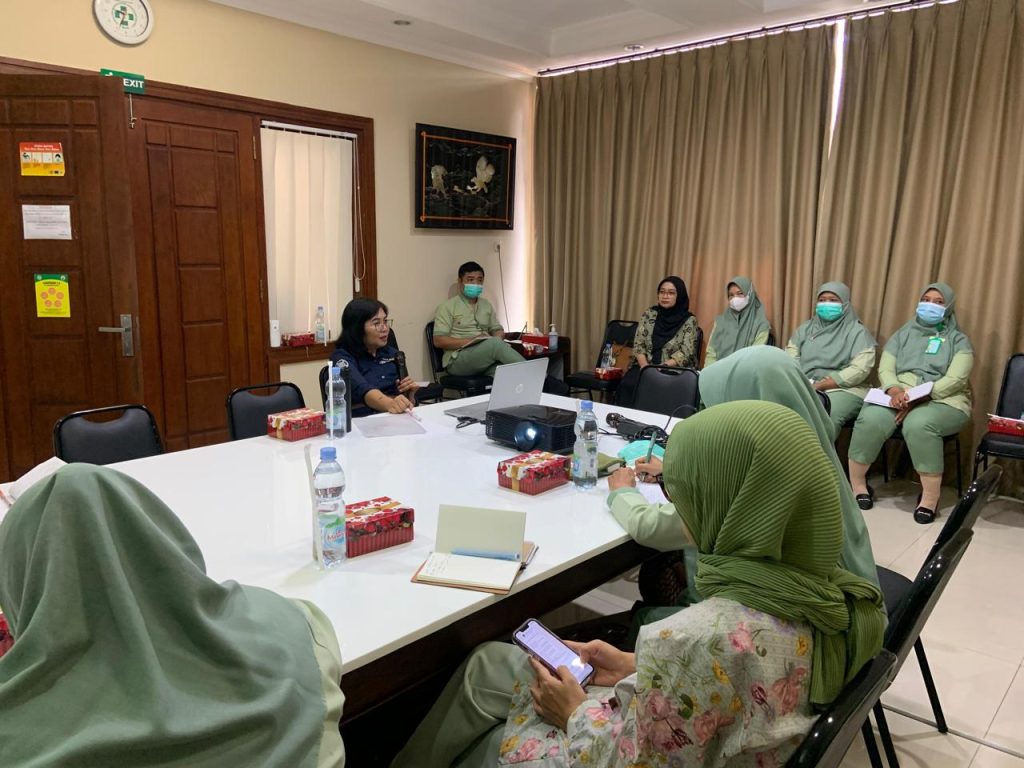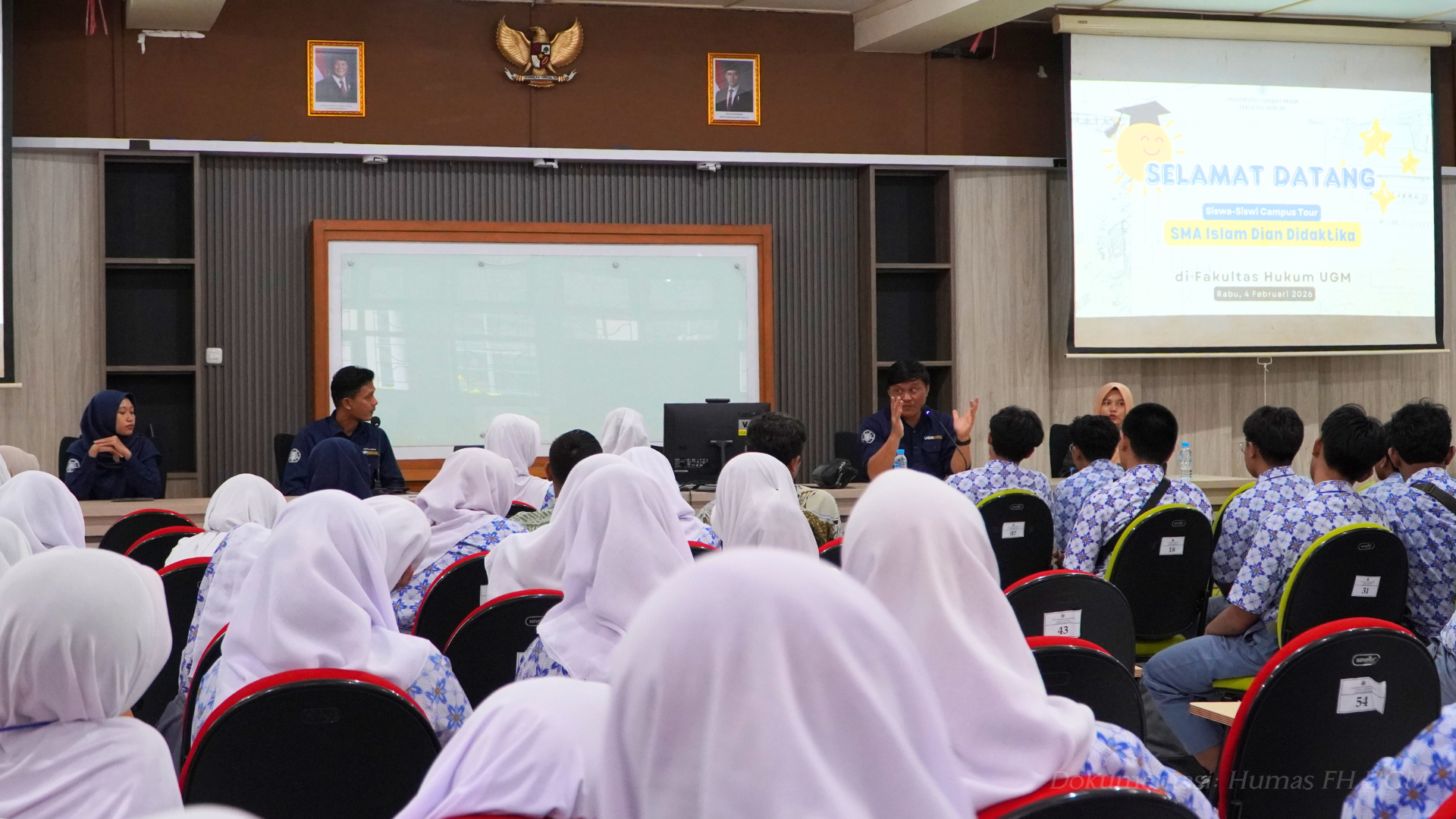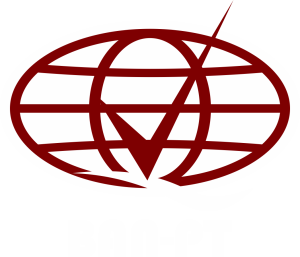On Wednesday (2/10/2024), a groundbreaking legal outreach program titled "Achieving Distributive Justice for Patients and Healthcare Professionals through Medical Dispute Mediation" took place at Diponegoro Hospital’s Nggolo Suwitan Building.
The event, led by Herliana, S.H., M.CommLaw., Ph.D., an Associate Professor in Faculty of Law Universitas Gadjah Mada, aimed to increase the understanding of medical personnel regarding the process of medical dispute mediation, providing an alternative path for resolving conflicts between healthcare providers and patients. Attendees included doctors, nurses, and other healthcare professionals from Diponegoro Hospital, which operates under the Ki Ageng Tritis Foundation.
The focus of the seminar was to introduce the concept of mediation as a faster, more cost-effective alternative to traditional litigation in resolving medical disputes. Herliana emphasized the importance of distributive justice, which entails fair and balanced responsibility-sharing between patients and healthcare providers.
This approach allows both parties to arrive at transparent, amicable solutions that uphold justice without damaging professional relationships. Throughout the session, Herliana explained the challenges faced by healthcare professionals when handling disputes and highlighted how mediation could help manage conflicts constructively, without the emotional and financial toll of a court battle.
In addition to introducing the participants to the fundamental aspects of medical mediation, the seminar explored its practical benefits. Healthcare professionals learned how mediation offers a more efficient, quicker, and less costly resolution to disputes, while maintaining the dignity of both the medical staff and the patients involved. Moreover, it fosters a deeper understanding of rights and responsibilities and helps medical professionals manage conflicts in a professional and composed manner, reducing the risk of lawsuits and other professional repercussions. Through these insights, participants were better equipped to handle disputes while preserving relationships with patients and ensuring high-quality care.
The seminar not only educated attendees about the technical aspects of mediation but also emphasized the long-term benefits for healthcare providers. With improved knowledge of mediation, medical personnel are now able to approach disputes more effectively, reducing the burden of time-consuming and expensive legal proceedings. The newfound understanding of distributive justice will help medical professionals to share responsibilities fairly with patients, allowing them to perform their duties with greater confidence. The ability to manage disputes professionally also enhances trust between patients and medical institutions, ensuring that healthcare providers maintain their reputations and continue to deliver excellent care without fear of litigation.
This initiative aligns closely with several of the United Nations' Sustainable Development Goals (SDGs), particularly SDG 3: Good Health and Well-Being and SDG 16: Peace, Justice, and Strong Institutions. The program’s focus on promoting mediation as an effective conflict resolution tool supports SDG 3 by improving the overall well-being of both healthcare providers and patients. Additionally, the mediation process contrib
By encouraging fair and just solutions, the seminar helps build stronger, more resilient healthcare systems that prioritize the well-being of all stakeholders involved. Herliana concluded the event by underscoring the essential role that healthcare professionals play in creating a fair and balanced healthcare environment. She expressed optimism that with the right tools and knowledge, medical professionals can handle conflicts in a way that benefits both parties, ensuring justice and maintaining strong relationships between providers and patients. The seminar marked a significant step forward in enhancing the capabilities of healthcare professionals to resolve disputes while upholding their ethical and professional obligations.
Author: Raihan Khrisna Amalia (Departemen Hukum Perdata)
Editor: PR








